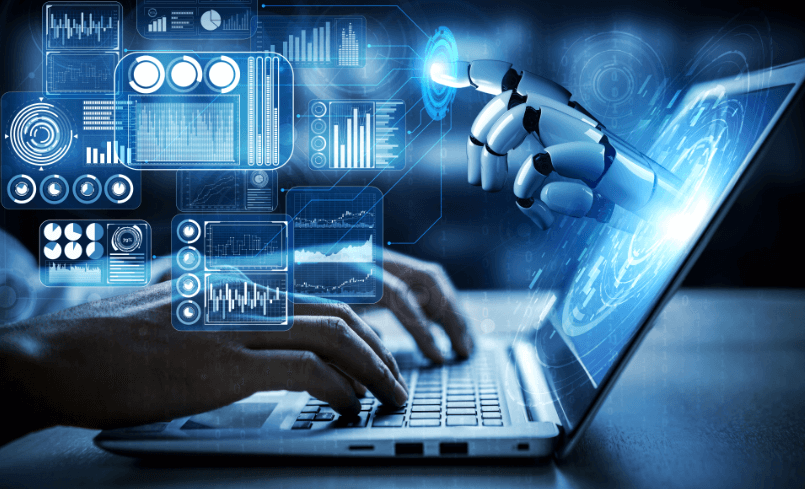The Future of Technology: Key Innovations Driving 2025
Technology is advancing at an incredible speed, shaping how we live, work, and interact with the world. In 2025, innovations such as Artificial Intelligence (AI), 5G networks, cloud computing, blockchain, and green technology are driving progress in nearly every industry. Businesses and individuals that adapt quickly will remain competitive, while those who resist risk falling behind. This article explores the top technology trends of 2025 and how they are changing the future.
Artificial Intelligence (AI): The Brain of Modern Technology
Artificial Intelligence is no longer futuristic—it is part of everyday life. From smart assistants to self-driving cars, AI is transforming industries.
- Healthcare: AI improves diagnostics, drug discovery, and robotic surgery.
- Business: AI automates workflows, enhances customer support, and drives marketing strategies.
- Education: Personalized learning platforms adapt lessons to individual students.
Generative AI tools are creating text, images, and videos in seconds, revolutionizing content creation. By 2030, AI is expected to add over $15 trillion to the global economy, making it a cornerstone of growth.
Cloud Computing: The Backbone of Digital Transformation
Cloud computing powers the global digital economy. It allows businesses and individuals to store, manage, and access data from anywhere with high security.
- Scalability: Companies can expand IT resources instantly.
- Remote work: Cloud platforms support global teams with collaboration tools.
- Cost savings: Eliminates the need for expensive physical infrastructure.
Leaders such as AWS, Microsoft Azure, and Google Cloud dominate the market, providing innovative solutions for businesses worldwide. Cloud adoption will continue to rise as hybrid models become the norm.
Internet of Things (IoT): A Smarter, Connected World
The Internet of Things (IoT) connects billions of devices, enabling them to collect and share data.
- Smart homes: IoT devices like cameras, smart thermostats, and appliances improve daily convenience.
- Healthcare wearables: Fitness trackers monitor heart rate, blood pressure, and sleep cycles.
- Industrial IoT: Sensors in factories predict equipment failures, saving time and money.
Future smart cities will rely on IoT for traffic control, energy management, and waste reduction, making urban life more sustainable.
Cybersecurity: Protecting the Digital World
As technology evolves, cyber threats are also becoming more advanced. Cybersecurity is now essential for both businesses and individuals.
- Threats: Ransomware, phishing, and identity theft are rising.
- Solutions: AI-driven security, biometric authentication, and encrypted cloud services.
- Best practices: Strong passwords, multi-factor authentication, and secure networks.
With more devices connected than ever, cybersecurity will remain a top priority to build digital trust.
5G Technology: Ultra-Fast Connectivity
The expansion of 5G networks is a game-changer for global connectivity.
- High-speed internet: Supports smooth video streaming, gaming, and browsing.
- Smart infrastructure: Enables connected cars, remote healthcare, and smart cities.
- Low latency: Crucial for VR, AR, and metaverse applications.
5G will fuel the next wave of technological growth, making real-time communication and automation possible on a massive scale.
Blockchain: Building Trust and Transparency
Blockchain technology extends far beyond cryptocurrencies like Bitcoin. It is transforming industries by offering security, transparency, and efficiency.
- Finance: Supports decentralized finance (DeFi) and secure cross-border transactions.
- Supply chain: Tracks goods from production to consumer, ensuring authenticity.
- Healthcare: Stores patient data securely and reduces fraud.
As Web3 and NFTs grow, blockchain will remain central to creating decentralized digital ecosystems.
Green Technology: Innovation for a Sustainable Planet
Sustainability is a global priority, and green technology is helping reduce environmental impact.
- Renewable energy: Solar, wind, and hydropower are becoming mainstream sources.
- Electric vehicles (EVs): Tesla, Rivian, and BYD are transforming transportation.
- Smart grids: Manage electricity more efficiently to reduce waste.
Green innovation ensures that progress goes hand in hand with protecting the environment for future generations.
Emerging Tech to Watch in the Future
Several new technologies are on the horizon that will reshape the next decade:
- Quantum computing: Unlocks problem-solving power beyond today’s computers.
- Metaverse platforms: Create immersive spaces for learning, business, and entertainment.
- Biotechnology: Advances in genetics and personalized medicine are extending human life.
- Artificial General Intelligence (AGI): The next level of AI capable of human-like reasoning.
These breakthroughs will create opportunities and challenges that require careful management.
Conclusion
Technology in 2025 is more than convenience—it is a driver of global change. From AI and IoT to 5G and blockchain, innovations are reshaping industries and daily life. At the same time, cybersecurity and sustainability remain critical to ensure safe and responsible growth.
The future of technology lies in balance—between innovation and responsibility, speed and security, progress and sustainability. By embracing these trends wisely, businesses and individuals can thrive in a world where technology is the foundation of success.




